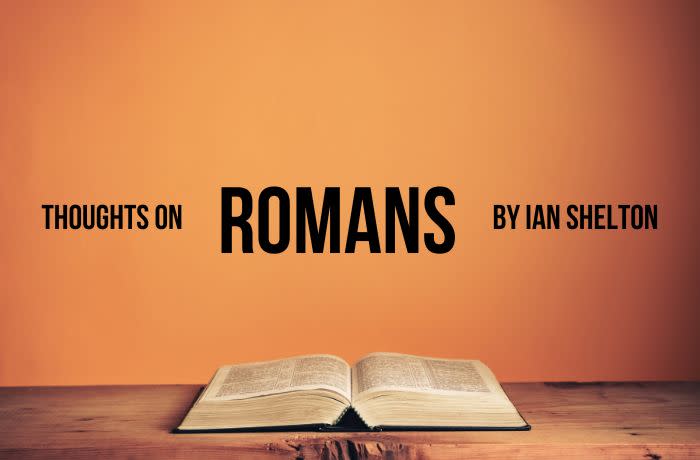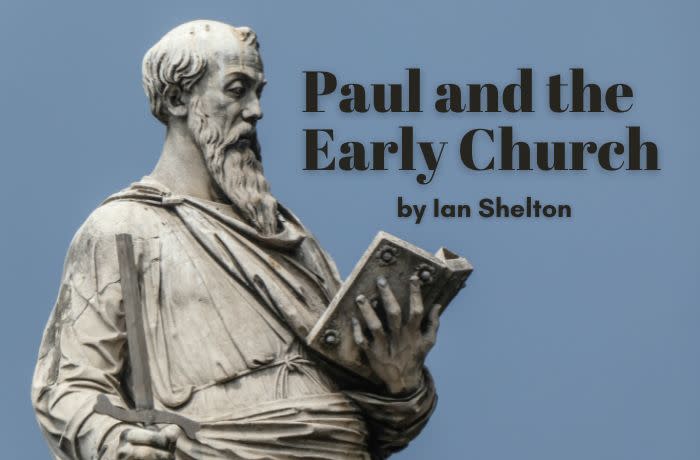Download our vision book
Deuteronomy, of course, means that the law is given by Moses a second time. While this book does repeat some of the law given and recorded in Exodus it is far more than just that. This is the story of the almighty God speaking through Moses to the second generation revealing to them the amazing purposes He has in store for them.
As Christopher Wright says in his commentary, Deuteronomy is “a book for a people on the move.” He adds that this book “presents a God of sovereign worldwide purpose and a people with a sharp spiritual mandate and moral agenda.” (Page 8)
This is the God of purpose taking a nation of desert nomads and preparing them to be “city takers” and urban dwellers.
God would instruct His people how to “live as a distinctive (holy) community by the standards of justice and compassion that characterised Yahweh, or (they) would sink to the inequalities, corruptions, and perversions that were sanctioned by Baalism.” (Wright page 9)
In Deuteronomy God is teaching them to think “city.” They were not only to think city but needed first of all to possess cities in line with the Abrahamic promise of Genesis 22:17.
David W Smith in his brilliant book Seeking a City with Foundations quotes a source saying, “According to scripture, the city constitutes a central context for faith and practice.” (Page 121) Smith goes on to say that much of Deuteronomy can be seen as an “urban charter.” (Pages 131,156)
The idea of taking walled cities from a strongly fortified enemy seemed daunting to say the least but Moses encouraged the people that they already had experienced victories in their attacks on cities which they had successfully captured. He emphasised that “no city was too high” for them. (Deut. 2:33-3:11)
This type of encouragement is needed today as Christians consider the challenge of reaching modern cities with the gospel. Daunting indeed! But the Abrahamic promise of possessing the cities of the enemy remains true today.
God’s people were not only called to possess the cities but to rebuild and restore them as Godly communities.
God’s purpose from the beginning was to settle His family into communities of shalom reflecting the heavenly city. While this was short circuited in the garden, God put His agenda back on track through the call of Abraham.
Israel, as Abraham’s family had become, were now poised on the border of the Promised Land ready to go in and possess their God given inheritance. They would finally be free of the slavery of Egypt and the judgement of the forty years of desert wanderings.
It was time to move forward into their exciting future.
This is also where the western church is currently poised. The question is, will the western church go forward by embracing a new paradigm or return to past practices?
It is a new day and God is doing a “new thing.” (Is. 42:9)
So Deuteronomy became the agenda for future thinking people, who knew that God was equipping and calling them to leave where they were and move forward into all that God had for them. (Deut. 1:6)
Deuteronomy was preparing a people for a new and better future. God had not only promised them their very own land but also the gift of ready made cities.
“….give you—a land with large, flourishing cities you did not build,” (Deut. 6:10b NIV)
However there was a problem, a huge one!
The land and its cities promised as a gift by God were currently owned by an idolatrous, evil, oppressive enemy who had no intention of handing over their cities and land to a bunch of usurping slaves.
On the surface it would seem this was a strange gift. God was saying, here it is but by the way you will have to fight “tooth and nail” for every inch of this land. (To quote Dickens in David Copperfield.) To fight for a gift given by God seems a strange type of gift giving. Why?
Back to the source of the issue. God owns everything and gave a mandate to rule the earth to Adam and Eve. They then gave this ruling mandate to Satan who now “possesses” what is not his to possess. In the meantime God created a family through Abraham to again rule on His behalf. This family was mandated to regain that rule in God’s name, by repossessing the land and its cities.
The word “possess” referred to before is one of the most common words used in Deuteronomy. The “men of war” were to go and “possess” the land city by city. More of that in Joshua.
To possess the land was to drive out the previous inhabitants and possess in their place. This meant war! (The Theological Word Study of the Old Testament is very instructive.)
The enemy usurper seeks to possess and fill the earth with the evil unjust practices of an idolatrous people. God says this must not be allowed to happen. (Is. 14:21) This Satanic darkness destroys land and cities, and still does.
Deuteronomy prepares the people well by instructing them over and over again that God Himself would go ahead of them to defeat the enemy as the people went forward into their inheritance. “Inherit” and “possess” are the same Hebrew word.
This reflects the greatness of the sovereign God, His covenant with His people and the clarity of His word. Frequently in Deuteronomy God calls His people to obedience of His word as the foundational condition for victory going forward.
First of all it was a word declaring the unity of God and of Israel. There would be no victory without a total love response to God, and the total unity of the people. God was renewing His covenant of love with His people.
To repeat, God loved His family and had planned a wonderful future for them as they went into the promised land and settled into their new communities.
“Hear, O Israel! The LORD is our God, the LORD is one! You shall love the LORD your God with all your heart and with all your soul and with all your might. These words, which I am commanding you today, shall be on your heart.” (Deut. 6:4-6 NASB)
God went on to say through Moses that His word was to be taught to individuals, to the families and to the city at large. (Dt. 6:8-9) This is modern day discipleship. However often Christians today don’t understand their role in “discipling” cities, and only too often, not even their own families.
God made it clear that there would be no possessing of the land or its cities except on the basis of His word. The people needed to learn that life came from being doers of the word.
“All the commandments that I am commanding you today you shall be careful to do, that you may live and multiply, and go in and possess the land which the LORD swore to give to your forefathers. You shall remember all the way which the LORD your God has led you in the wilderness these forty years, that He might humble you, testing you, to know what was in your heart, whether you would keep His commandments or not. He humbled you and let you be hungry, and fed you with manna which you did not know, nor did your fathers know, that He might make you understand that man does not live by bread alone, but man lives by everything that proceeds out of the mouth of the LORD.” (Deut. 8:1-3 NASB)
Jesus brought this home strongly by quoting the last portion of the above scripture in Matthew 4:4 when confronting the devil.
Also important from the above scripture is God’s intention to use wilderness experiences to produce a humble people who had learned to be keepers of God’s word. God was often warning the people against thinking that somehow their own achievements got them the victory.
In the battle for cities, it was God alone who secured the victory. There was no place for self righteousness or a false holiness. God was actually moving powerfully against an evil unjust and oppressive enemy. (Read and ponder Deut. 9:1-8 carefully.)
But in spite of His people being wayward He loved them as a father and carried them to the Promised Land “to do them good in the end.” He gave them power to make wealth thus confirming His covenant of love with them. (Deut. 8:16-18)
The last few chapters of Deuteronomy highlight the covenantal blessings and curses that follow a people, based on their response to God and His word. The importance of unity is emphasised. The phase “all of the people” is repeated several times in chapter 27.
It is clear that cities are included in the covenantal blessings and curses. (Deut. 28:3,16,52-57) To live in a blessed city has got to be preferable to living in a cursed city! Stories abound today of Christians blessing their cities through the gospel.
To bless a city and apply the teaching of Deuteronomy is to see the city as a whole, a viable unit in its own right.
Just as the early church in obedience to the great commission took the gospel to the cities of the Empire as recorded in Acts, so today the lesson from Deuteronomy is again to be equipped as God’s “alternative Kingdom people” to proclaim the gospel, in word and deed, into the darkness and pain of our modern cities and towns.
By Ian Shelton Coordinator of Movement Australia



